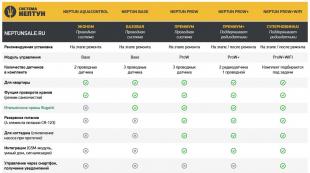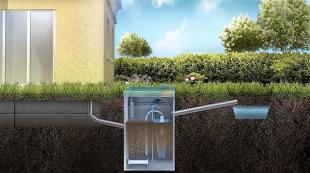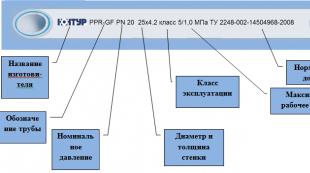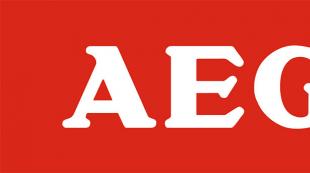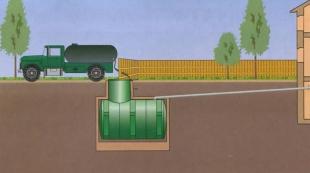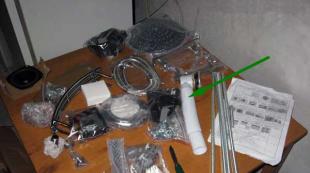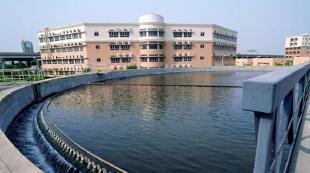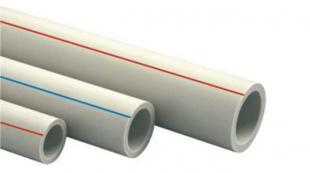Choosing the best polypropylene pipes
5 October 2015  Alexei
Alexei

The use of metal pipelines in the construction of sewerage and heating systems, as well as water supply, is gradually becoming a thing of the past.
Products made of materials of polymeric origin have become a worthy replacement for them. The best pipes made of polyplene foam are not only not inferior to metal counterparts in their qualities, but also surpass them in many characteristics.
This allows you to install pipelines that can withstand high temperatures and significant pressure. The material is durable and elastic, even when freezing, the products remain intact, as their walls expand along with frozen water, and after thawing they acquire their original state.
Features and Specifications
Currently, a huge number of elements and structures of pipeline systems made of polymers are presented on the market for sanitary equipment. A significant segment is occupied by products made of polypropylene. There are products of both Russian and foreign manufacturers.
Watch the video, types and their advantages:
Therefore, the main question today is which of all this variety to choose polypropylene pipes so that they meet the requirements for them in each case. To do this, first of all, it is necessary to have an idea of what these products are and what advantages or disadvantages they have.
The main positive properties are the following:
- Corrosion resistance;
- Long service life;
- Resistance to aggressive substances;
- Reliability;
- Low noise, no vibration;
- Low coefficient of hydraulic resistance;
- Low heat dissipation;
- Ease of installation;
- Environmental Safety.
It should be noted that polypropylene pipes and other elements or structures, the choice of which is carried out due to the above features, make it possible to maintain the quality indicators of pipeline systems over many years of operation.
Products made of polymers are chemically inert and have excellent cross-country ability. Polypropylene is practically indestructible, which increases the reliability of the use of pipes in the winter. The noise of water passing through them is not audible and does not cause discomfort to others.
Unlike metal pipes, the saving of hot water heat in polypropylene products is much higher. Greater reliability of connections is also noted, and a huge selection of fittings makes it possible to wire any system, no matter how complex its configuration.
What are the types
Depending on the design, two types are distinguished:
- Single layer;
- Multilayer.

The first group, in turn, is divided into several types:
- PPH - made from homopolypropylene and used in cold water supply, in the arrangement of ventilation and industrial pipelines;
- РРВ - made of block copolymer, used in underfloor heating and for supplying cold water;
- PPR - the material is a random copolymer of polypropylene, it can be used for hot water supply, water heating and floor heating systems;
- PPs is a special polypropylene with flame retardant properties.
The second group includes polypropylene multilayer pipes, and in order to know how to choose the right ones from them, we advise you to pay attention to their reinforcement. They are mainly used in heating systems. Their elongation at high temperatures is much less than that of single-layer ones. Reinforced products can be smooth or perforated.
The choice of pipes for organizing water supply
To date, the main scope of their application is the supply of water to objects. Reinforced pipes are used for hot water supply, and non-reinforced - for cold. The material from which they are made can withstand temperatures of 90 degrees. Such pipes have proven themselves well when laying internal systems.
Watch the video, selection criteria:
This is also facilitated by their durability, the service life can reach 50 years or more. In addition, even the best polypropylene pipes selected for home water supply are much lower in cost than their counterparts made of copper or steel.
Preference is given to them taking into account such important advantages as:
- Low cost;
- Strength and durability;
- Easy installation;
- Reliable tightness of connections;
- Possibility of application in the arrangement of heating and hot water supply.
Even the best pipes have some drawbacks associated with their installation. The fact is that during installation, all connections are made one-piece and in case of an error or poor-quality performance, the problem area will have to be cut out and soldered again. It is clear that the main condition for arranging a system of such pipes is the presence of a welding machine.
Overview of popular manufacturers
Plastic is gradually replacing metal pipes from plumbing and heating systems. He is not afraid of corrosion, he does not collapse under the influence of aggressive environments, is able to withstand low and high temperatures, is lightweight and has a low cost.
Therefore, it has become very popular in the market. Today, the main question that interests consumers is: which company is better for polypropylene pipes? Let's try to determine which of the manufacturers has the most favorable ratio of quality and cost.
We watch a video about Rehau products, expert opinions:
Judging by the numerous reviews of specialists and homeowners, the leading positions are occupied by products from Germany, where they produce the best and highest quality polypropylene pipes today. The most famous brands are:
- Akwatherm;
- Rehau.
The second place is confidently occupied by Czech products of such companies as:
- ECOPLASTIC;
- FV plastic.
At the next level are pipes produced in Turkey. The most famous brands are Valtek and Kalde.
Polypropylene pipes from China in the list of which of them are better in fourth place. There are two brands:
- Dyzain;
- BLUE OCEAN.
The most budget option is considered domestic products:
- Politek;
- PRO AQUA;
- Heisskraft;
- Santrade.
Let's take a closer look at what are and how polypropylene pipes of Russian manufacturers differ.
Watch a video about PRO AQUA products:
PRO AQUA products are used both in water supply systems of industrial, administrative and residential buildings, as well as in technological pipelines. The permissible temperature in them is +95 degrees. They are not afraid of corrosion, resistant to aggressive substances, easy to install, absolutely harmless. Able to withstand high pressure of 79.5 atm, which significantly increases their service life.
Pipes with the RVC trademark are produced by the Russian company Plastic from Orenburg. Made of polypropylene PN 25, they are used in heating and hot water systems. They have internal aluminum reinforcement. One of the shortcomings of the products of this company, buyers call "walking sizes."
In the Moscow region there is a plant where Heisskraft pipes are produced. Their quality is quite high, especially reinforced products, which are produced using German technology. It is possible that some of the products are brought ready-made from Germany.
![]()
Products from Heisskraft
Heisscraft pipes, judging by the numerous positive reviews, are also of good quality. Consumers are a little confused by the gray color of the products, which is caused by the addition of technical soot to polypropylene. But such an addition to the composition is fully justified, since soot acts as a good stabilizer. This gives the pipes additional strength and elasticity, which should please, not upset, consumers.
It is still difficult to say what kind of quality polypropylene pipes of the Santrade brand are, since there are practically no reviews about them. This is most quickly explained by the still not very popular brand.
What length and wall thickness to choose polypropylene pipes of the Politek brand depends on the scope of their application. According to installers, their installation does not cause big problems, despite the susceptibility to deformation during compression.
Conclusion
When purchasing products from Russian manufacturers, you should also purchase polypropylene fittings from the same companies along with pipes so that the pipeline systems being created are homogeneous. Domestic products in many cases have the same technical characteristics as foreign counterparts, but at a lower cost.
